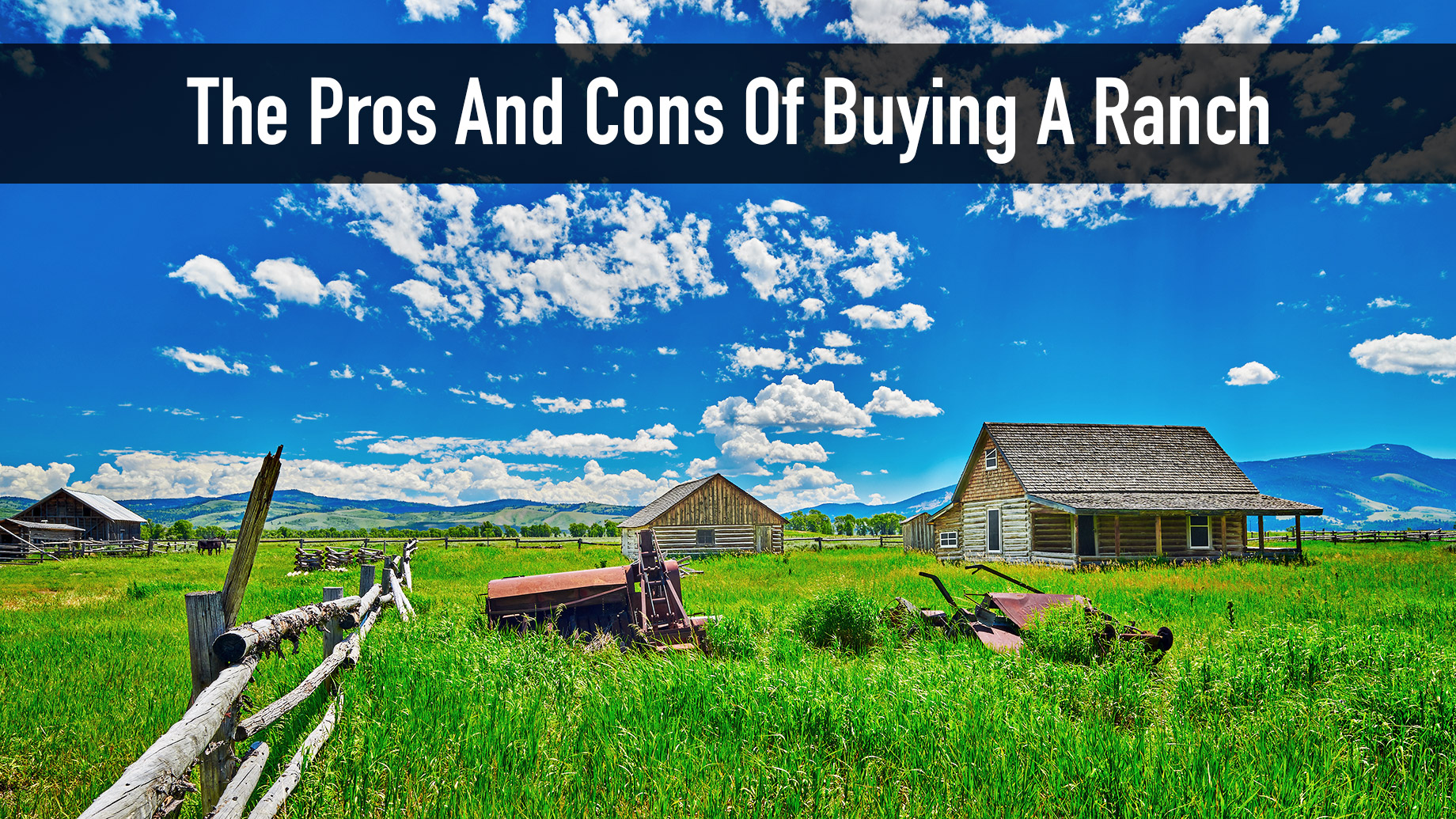
Buying a ranch is a rewarding investment. It’s one of the best ways to have your very own ‘slice of paradise’ in the beautiful state of Wyoming. You can enjoy a relaxed and comfortable lifestyle that’s more in sync with nature while enjoying a number of financial benefits at the same time.
Whether you’re a young buck or an old-timer, you’ll find that the Wyoming ranches for sale create the perfect place for you to fulfill and live your dreams
However, buying a ranch comes with its set of pros and cons, which will be discussed in this article:
Pros Of Buying A Ranch
Here are some of the benefits of investing in a ranch in Wyoming:
1. They Grow In Value
A ranch is one of the best assets you can buy, which is why it’s a great idea to invest in a ranch for sale in Wyoming. It never loses its value because of the fact that it’s a limited resource.
Even if you don’t plan on developing your ranch, it still has the possibility to increase in value over time. So, if you decide to sell it in the future, you can make a profit out of it.
2. Extremely Profitable
Ranches are always profitable. Even if you don’t plan on developing or planting crops or raising livestock, you can still earn money by having your property leased. This provides a passive revenue stream that requires you to do nothing while earning an income at the same time.
All you need to do is advertise your ranch as an excellent area for planting crops, raising livestock, or breaking horses, and you’ll certainly find people who are eager to make use of your ranch. For livestock equipment, you can check realindustries.com.
3. Provides A Retreat For You And Your Family
Ranches are more than just a piece of land. They also give you a place to rest and recharge. If you’re a busy professional that’s been working hard in the big city, ranches can provide you with a peaceful place for you and your family to retreat.
Ranches in Wyoming are filled with gorgeous views and are surrounded by trees and wildlife. Whether you’re looking to stay on the ranch all-year-round, or just use it as a vacation home, you’ll truly enjoy the kind of tranquil lifestyle that a ranch can provide.
Cons Of Buying A Ranch
As wonderful as owning a ranch can be, it also comes with disadvantages which are as follows:
1. Adjusting To A Rural Lifestyle Can Be Difficult
One of the more important drawbacks of owning a ranch is that you may find it difficult for you and your family to adjust to a rural lifestyle. Even if you don’t plan to live on your property, you still have to at least move closer to it, so you can check it regularly.
Until you can find someone you can trust to look after your ranch, you’ll have no choice but to live on it or at least move closer to the land, so you’re in a good position to protect it from encroachers.
2. More Maintenance Required
Ranches require a lot of maintenance than a traditional home. Since you’re going to add it to your investment portfolio, it also means that you have to look after it. Don’t forget about the animals and the crops you have to tend to – both of which require constant attention and proper care.
Living or owning a ranch is not ideal for everyone, especially for those who are looking to live an easy life. It definitely requires a lot of work just to maintain it.
3. The Income You Earn Depends On Several Factors
If you plan on leasing the ranch to another person, you should know that the income you’ll receive depends on the quality of the crops grown or animals raised. The quality of these things is often affected by inevitable external influences such as soil type, quality and amount of water supply, and the weather. These factors also play a crucial role in whether or not you’ll be able to lease your land.
Final Thoughts

Buying a ranch is a big investment, especially if you consider the pros and cons listed above. Also, it’s not the same as buying a standard real estate property such as a home. For this reason, it’s best if you can consult with a professional who’s knowledgeable in ranches to help you with your purchase, so you don’t end up regretting your decision on investing in land.